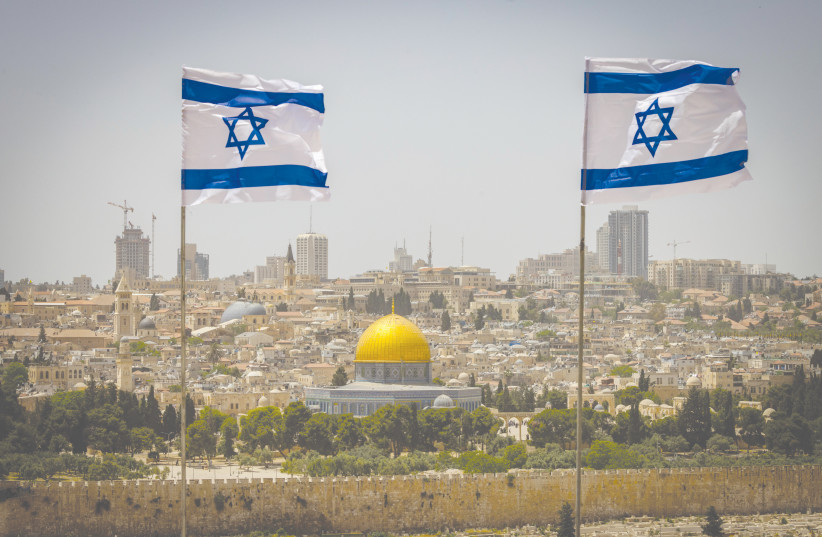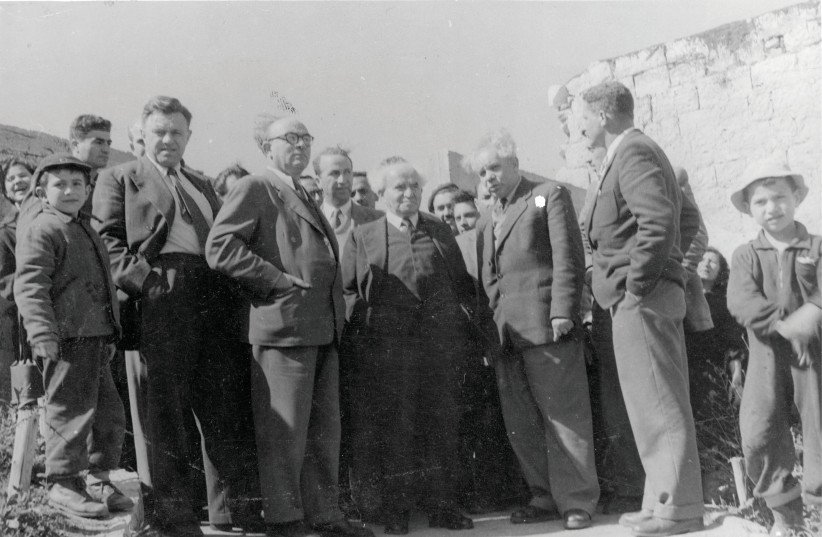After three months of watching Israel almost rupture at the seams, there is one silver lining that is worth pondering – after the scenes that played out in the streets of Jerusalem and Tel Aviv these past few weeks, it is almost impossible for someone to live in this country and be indifferent.
Whether you agree or disagree with the protesters who fought against Prime Minister Benjamin Netanyahu’s judicial reforms, there is something inspiring seeing so many people – in so many places – leave their work, their families and the comfort of their homes to take to the streets and fight for change.
Many of these protesters were the people who the Right has claimed for years had abandoned Zionism and embraced post-Zionist thinking. They were the so-called Tel Avivians who were said to be more focused on hi-tech, more interested in traveling overseas and going to various European embassies to take out a second passport than fighting for the country.
What we’ve seen over the last three months is that this is not the case. These so-called Post Zionists either never left Zionism or they have re-found it and are now embracing the uniqueness of Israel and understanding that it cannot just be like any other country.
Israel is unique – and will continue to be that way assuming that the country can find a way out of the quagmire and heal the rift that has been tearing it apart for the last 12 weeks.

Israel is a unique country
I HAVE BEEN thinking about this a lot over the past week – and now as I sit to write my last column as editor-in-chief of The Jerusalem Post. I became editor of this newspaper seven years ago and could not have imagined then what the next seven years would bring – five elections in Israel, unprecedented political paralysis, a prime minister indicted and on trial and, of course, the last three months.
When the first of the five consecutive elections was called at the end of 2018, I remember thinking that I could now check off another one of the boxes every editor needs to experience – an Israeli election, a US election, a military operation and of course the regular routine of putting out a daily newspaper.
I have learned a lot about our country in these seven years – and have mostly been moved in a positive way by what I have seen. Yes, the politics tends to take over almost everything in the country and it also dominates the national discourse, but what we see on the streets among regular folks is a unique society, one where people care for one another and work daily to make this place better.
I remember in March 2020 – when coronavirus began to spread and countries were going into lockdown – a family member in the US asked whether they should stay there or come to Israel. At first, my reaction was to stay put. Don’t risk getting on a plane, I said at the time. Sit tight.
After two days, though, I changed my mind. If the world was spinning out of control, where was it better to be if not here? Where would someone more quickly race to help you while risking their own life if not here?
This is just one story, but I think it tells something that we all know and have all experienced in our own little way. It is like when I fell off my bike a few weeks ago on Jaffa Road in Jerusalem and immediately three people ran to help me get up.
I was visibly shaken (and sore). A haredi woman ran over with a bottle of water she had just bought at a nearby kiosk so I could have something to drink. A secular man came over and offered me a cigarette. It will help you relax, he said (I politely declined).
Thankfully I was fine, but their gestures moved me and proved once again what makes us unique as the State of Israel. We simply care about humanity.
I STEP DOWN from my role with great pride – and mixed feelings. On the one hand, I look at our accomplishments over the last few years and how we have grown as a newspaper – we have tripled our online traffic, grown our readership and turned our conferences into a world-recognized brand. In the last 18 months, we have put on conferences in Dubai, London, New York, Marrakesh, Jerusalem and Tel Aviv.
Our correspondents have reported from across the globe – from the battlefields of Ukraine to the Iraqi desert, from luxury cruises sailing in the Caribbean to the slums of Rwanda and Argentina.
On the other hand, I am concerned for the future of this country and what lies ahead. The last three months – the last three months of my tenure – have been some of the hardest in our country’s 75-year history. There was something like a collective sense of depression in the air these past few weeks and it has yet to completely disappear. How this can be fixed occupies much of my time and thoughts.
IT HAS BEEN the honor of a lifetime to carry the mantle of this storied publication and to have served as a reporter for more than a decade prior. I grew up in this newspaper and was given the unique privilege to not only observe the story of Israel and its people, but also to become an active player.

I have often thought of the famous teaching in Pirkei Avot (Ethics of the Fathers): “Know from where you came, where you are going, and before whom you are destined to give a judgment and accounting.”
I know where I came from: I began at The Jerusalem Post in an entry-level position on its Internet Desk in 2003 and climbed the ladder rung-by-rung until I became editor. I know where I am going: Mostly to take a break from the management of a daily paper (I will continue to write a column) and to spend time with my family, to whom I have immense gratitude for supporting me over the last few years. They, too, have contributed greatly to this paper’s success.
And to whom do I give judgment and accounting? In the afterlife, we know the answer, but in this role – as editor – it has always been to you, my readers.
YOU HAVE ALL BEEN my sounding board and the best audience for which an editor could ask. We did not always agree on some of the tough and contentious issues, and when that happened you were sure to let me know in letters, emails and online talkbacks. But even then – especially then – I found our interactions enlightening and important.
Running a newspaper is not like a regular business. The media play an important civic role in society and are looked to as places where people can wage battle in the court of public opinion.
To be the home or platform for these debates and battles has always been my main objective. I never believed that I – or we at the paper – had a better answer to the problems or challenges that afflict Israel, but we did want to challenge people and get them to think. We wanted to give them information – news – as objectively as possible, so they could then make their own decisions and form their own opinions. We did our best to bring you a wide variety of opinion pieces – from across the spectrum – so you could get a taste of it all, and then hopefully learn from it.
I do not know what the future holds. But when I think about this country, I believe that one of the greatest challenges we face today is in our ability to talk to one another and in our national storytelling – why are we here, what is our purpose as a nation and why do we even need a state today of our own?
The movement that took to the streets and led the public protests has the opportunity to go in three directions. It can fall apart, evaporate and simply disappear, it can turn into a political movement whose leaders run for public office, or it can channel its energy toward doing what people in this country have been trying to do for 75 years – make it a better place.
Israel needs a new story and raison d’etre. Being a safe haven for the Jewish people is no longer enough – and being a start-up nation is amazing but cannot be the only substance we offer.
Israel is more. There is a patriotic awakening in Israel right now. Let’s make the most of it.
